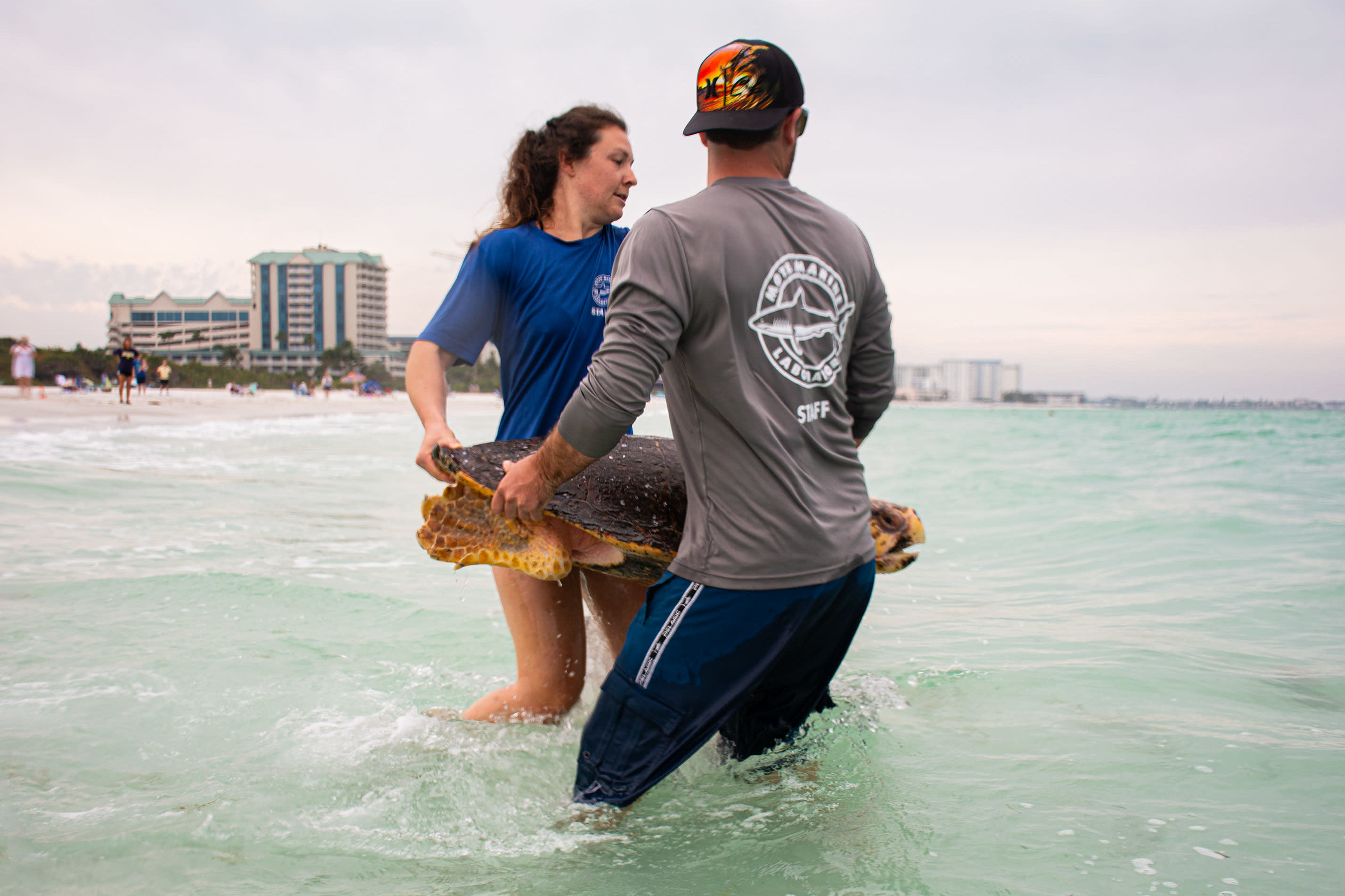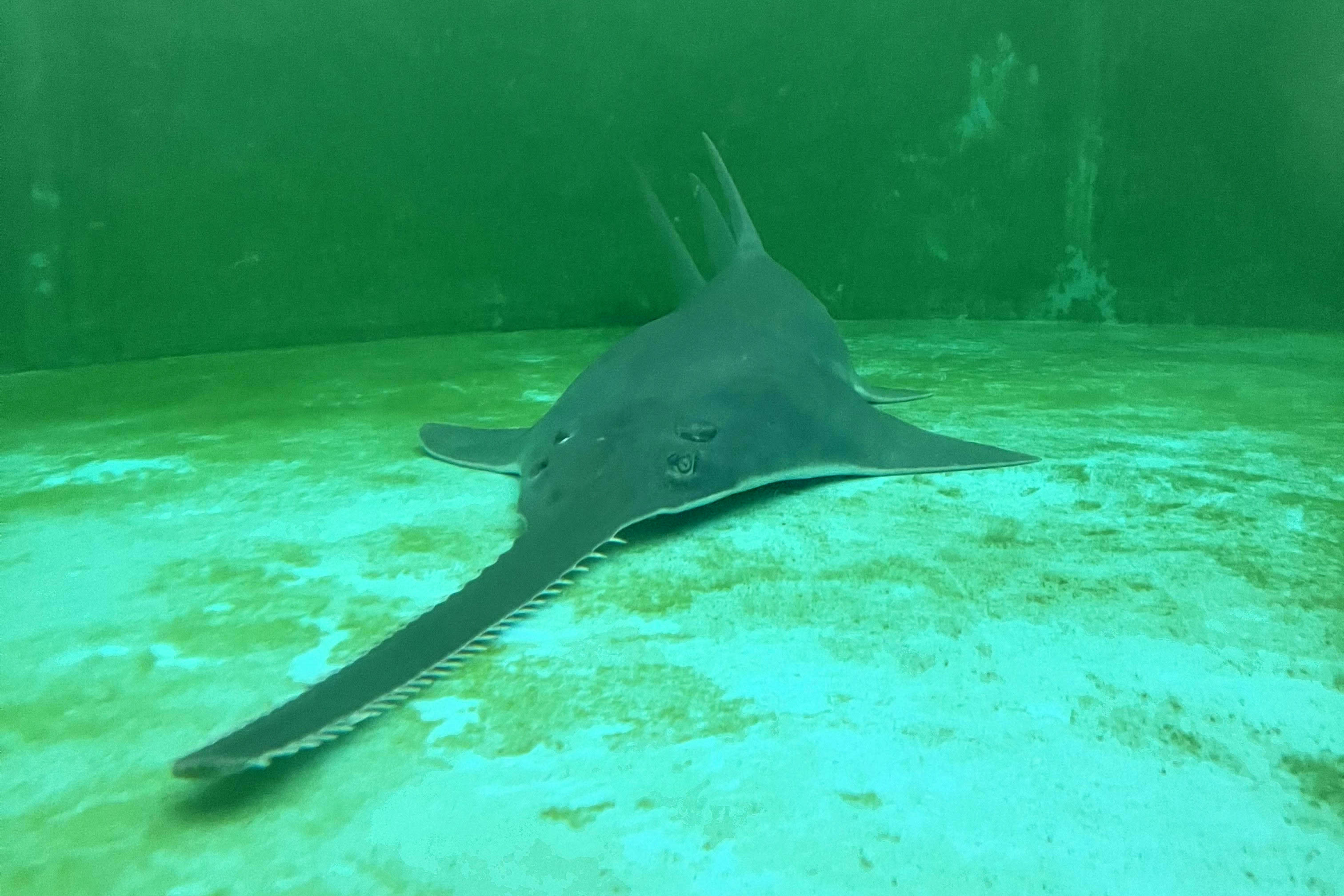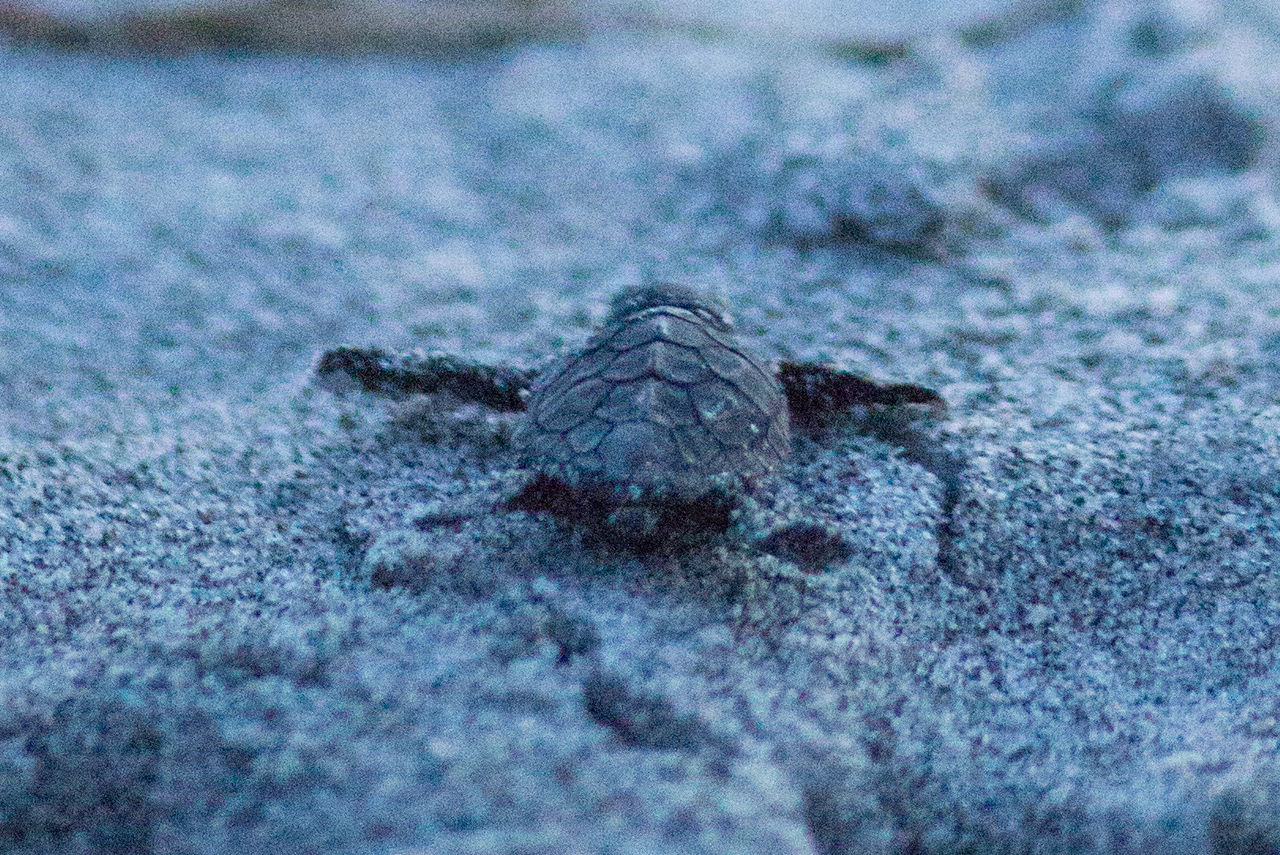Mote Caring for Six Cold-Stunned Kemp's Ridley Sea Turtles
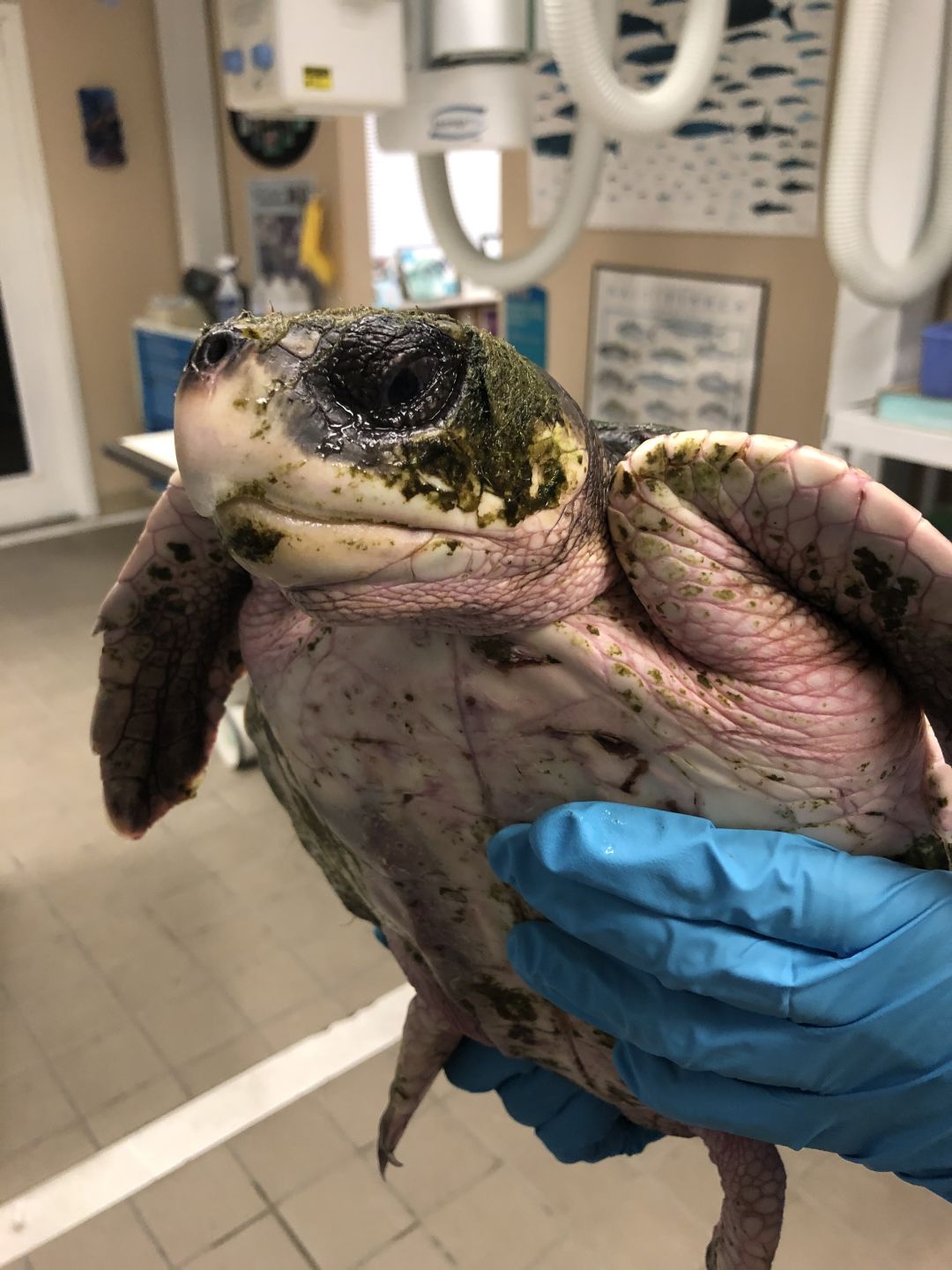
One of six cold-stunned Kemp's ridley sea turtles being cared for at Mote.
On Saturday, Nov. 21, Mote Marine Laboratory staff traveled picked up several cold-stunned Kemp's ridley sea turtles, each traveling in its own personal banana boxes. Nicknamed Art, Blue Spruce, Fraser, Douglas, Canaan and Noble, all six turtles arrived to Mote in extremely critical condition. However, supportive care—including fluids, increased water temperatures, and a little TLC—should result in a speedy recovery for all six turtles.
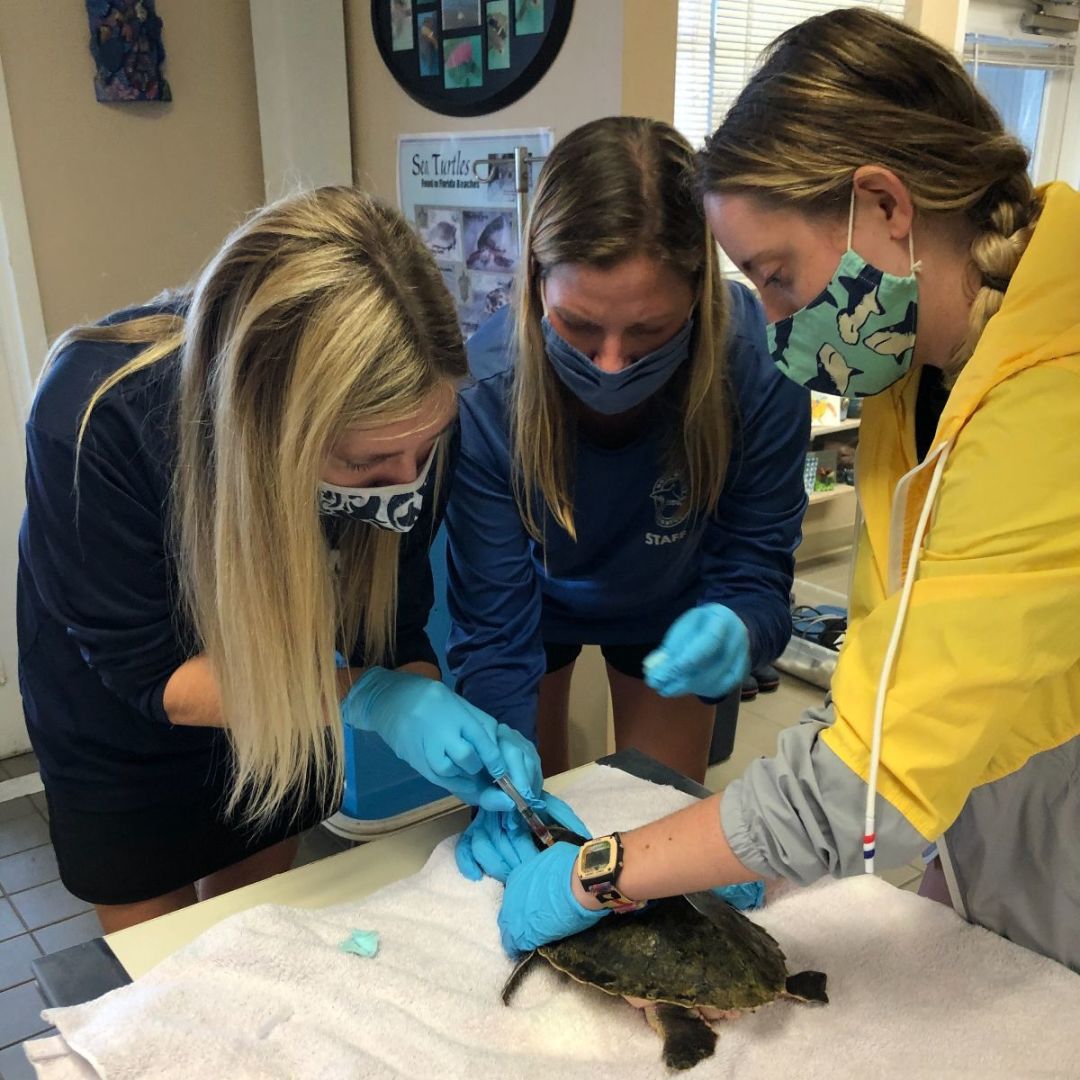
Mote staff members and interns care for one of the six Kemp's ridley sea turtles.
Sea turtles are ectothermic, or "cold-blooded," animals, meaning they're not able to regulate their body temperatures on their own. When they find themselves in too-cold water, they become lethargic. This can be potentially fatal their body functions slow down, leaving them susceptible to predators and boat strikes, allowing algae to grow on their backs, and more.
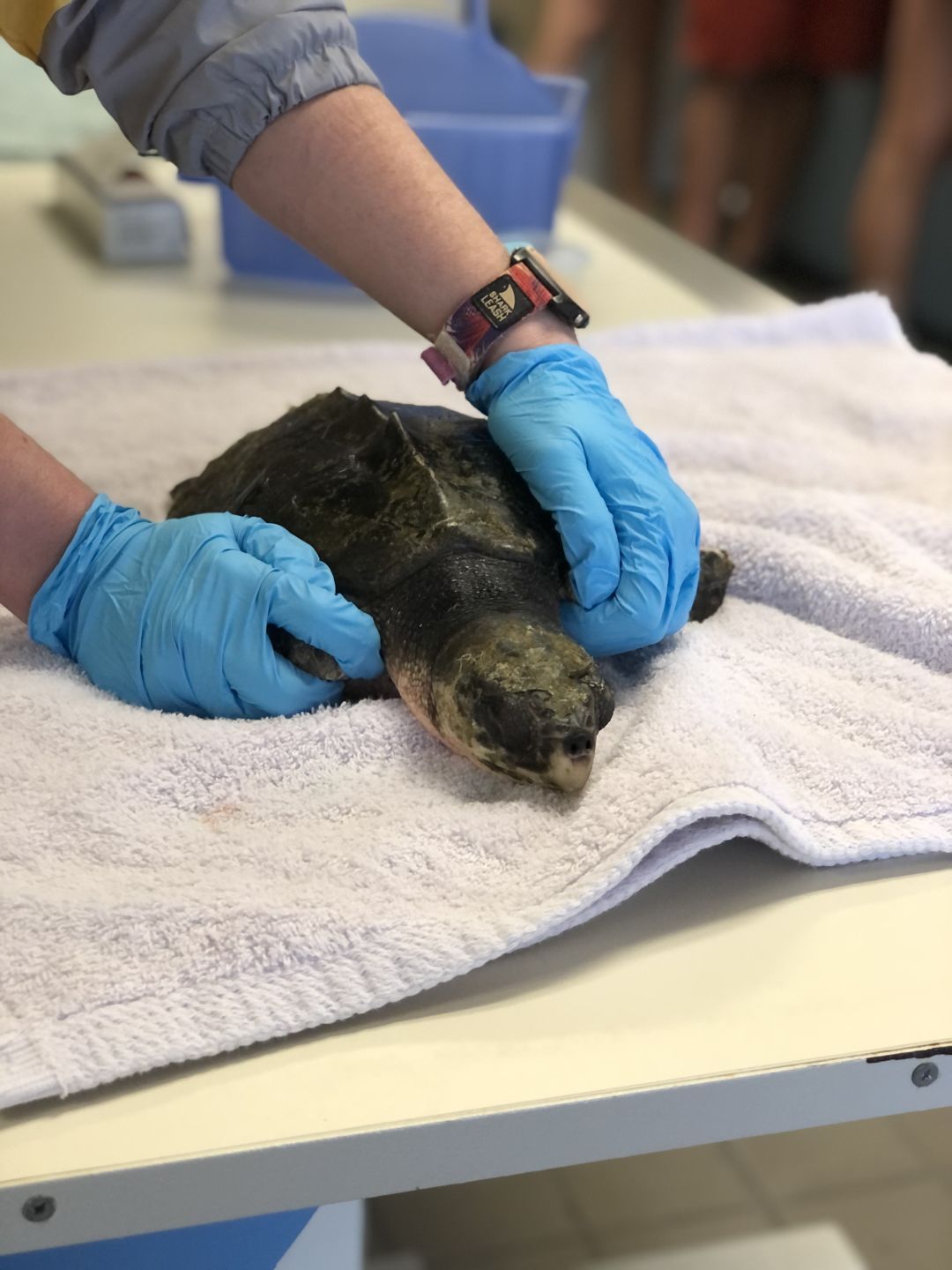
Sea turtles are ecothermic, or "cold-blooded," animals, meaning they can't regulate their body temperatures on their own.
As cold fronts and cooler water temperatures set in in the New England region, local rehabilitation facilities become inundated with cold-stun cases. To help, sea turtles are transported to other facilities for care, including Mote.
Kemp's ridley sea turtles are considered endangered by U.S. Fish and Wildlife Service and critically endangered by the International Union for Conservation of Nature and Natural Resources (IUCN). Threats to their population including rising water temperatures, degradation of habitat and nesting areas, and entanglement in marine debris.
